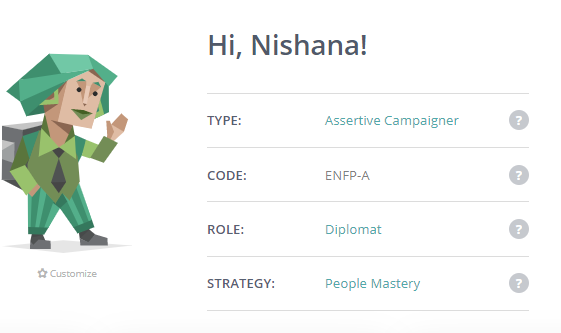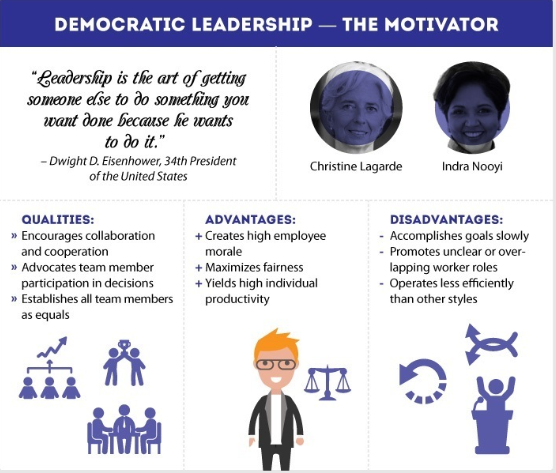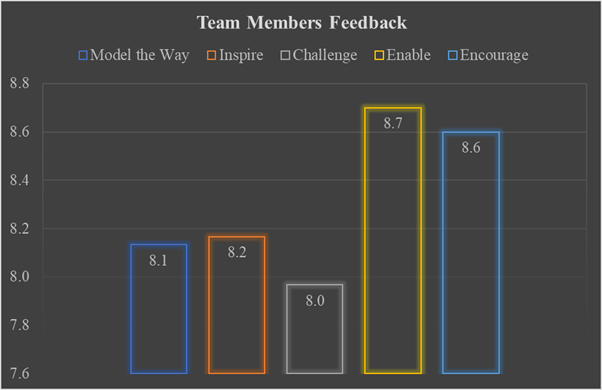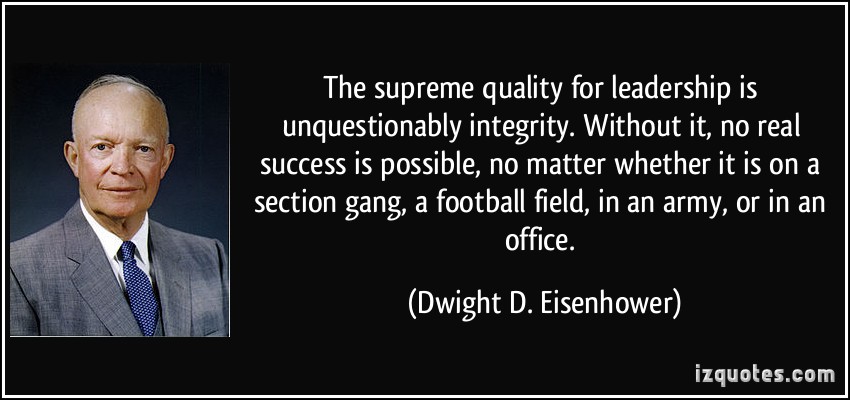LEADERSHIP DEFINITIONS BY SCHOLARS
The process of influencing an individual’s or a group’s actions in order to achieve a specific goal in a given situation is known as leadership (Hersey & Blanchard, 1988). Whereas, Schein (1992), has described it is the ability to step outside of one’s culture and able to begin more adaptive evolutionary change processes. Furthermore, Drucker (1996) has defined that a person who has followers is a leader.
WHY LEADERSHIP IS IMPORTANT?
Importance of leadership has led to a never-ending debate “whether leaders are born or made” for decades. As a result, numerous researches have been conducted focusing on leadership from a variety of perspectives, due to the importance of it on management and organizational behavior (Johnson et al., 1998; De Neve et al., 2013; Johnson et al., 2004). According to the study conducted by Mullins (2016) and Kouzes and Posner (2016), leadership is something which can be learned and nurtured. Other researchers such as Yukl (2019:194-200), has revealed some leadership traits which leads to its effectiveness and another survey has identified that both situational factors and individual traits determines leadership abilities (Stogdill, 1948).

Figure 1: Researchers findings on trait theory of leadership
Source: https://expertprogrammanagement.com/2021/06/trait-theory-of-leadership/
HOW TO IDENTIFY A GOOD LEADER
It is a very well-known fact that people often tend to point out bad leaders, but the question is do we really understand or know how to identify a good leader?
A recent study conducted by Center for Creative Leadership (2020), revealed that integrity, communication, gratitude and empathy is important for both organization and individual and it can be a blind spot for the organization. Whereas, Koehn (2005), stated that employees value integrity as a business asset when interacting with leaders and it create a well-structured working environment for employees (Tulberg, 2012).
Goleman (2004), identified that emotional intelligence is an important skill set for effective leadership and it is a necessity to become a successful leader (Watkin et al., 2017). Furthermore, emotional intelligent leaders are able to inspire and persuade individuals by using their social skill in order to achieve organizational goals (Srivastava, 2013).

Figure 3: Five element of emotional intelligence
Source: https://www.educba.com/emotional-intelligence-example/.
Kouzes and Posner (2007), has identified that leaders who practice shared values are more effective and also empathy is another essential skill that leaders require (Kirkpatrick, 1985). Thus, many organizations are encouraging different leadership skills within the employees in order to improve productivity (Burke and Barron, 2007).

Figure 4: Meridian Secondary School adopted Kouzes and Posner’s Five Practices
Source: https://meridiansec.moe.edu.sg/home/programmes/community-youth-leadership/.
MY JOURNEY AS A SALES OFFICER
The ever-changing global business environment has had a significant impact on my personal and professional life. As a reason my Individual needs, motivations, and definitions of satisfaction have also changed during past few years.
In the year 2017, after completing my bachelor’s degree in International Business and Marketing, I worked as a part time course coordinate in one of the colleges in Maldives. There I was given the opportunity, to travel to different atolls with the lecturers, set time table for the students and mainly coordinate with students and lecturers. That was the time I felt the importance of leadership. Later in 2018, I found a permanent job and started to work as a Sales Officer in one of the largest companies in Maldives. During my three years of work, I’ve learned a lot of new business strategies and have improved my performance. Company offered me the position of showroom supervisor in 2018, and when the sales division was restructured in 2021, they appointed me as showroom supervisor.

Figure 5: Pictures from my 3 years team work experience
However, I was unable to accept the offer due to unforeseen circumstances. I’m currently on unpaid leave to finish my MBA, and my ambition is to work as a leader in a management position. This, I believe, is an excellent opportunity for me to learn and grow as a future leader.
SELF EVALUATION
Before attempting to understand others, it is critical to first understand one’s own personality and behaviors. According to Clawson (2006), as a leader’s potential develops, he or she must be able to understand one’s own behaviors. As a result, I must evaluate, identify, and understand my strengths and weaknesses (Yukl et al., 2019:217).
Myers & Briggs 16 personality test (MBTI)


Figure 6: MBTI Result (Mind, Energy, Nature, Tactics and Identity)
Source: https://www.16personalities.com/profile
Figure 6: MBTI result has identified that, my personality type is Assertive Campaigner (ENFP-A) and the characteristics involve extraverted, intuitive, feeling, prospecting and assertive.
Open-mindedness, observance, enthusiasm, excellent communicator, adaptability, and spontaneity are among my strengths, which explains why I was given the opportunity to work in a senior position. Overthinking, getting stressed easily, being highly emotional, and having trouble focusing are some of my weaknesses that explain why I misplaced the opportunity.
Identified role is Diplomats and Trait (intuitive, feeling, assertive and extraverted)

Figure 7: MBTI identified roles and traits for my personality – created by author
Source: https://www.16personalities.com/articles/roles-diplomats
According to Luthar (1996), the ideal of democratic leadership is friendly, helpful, and encouraging participation and democratic leadership results in higher member satisfaction (Stogdill, 1974). Based on my MBTI roles and traits, the democratic leadership style is the best fit for me. However, I cannot overlook the significant disadvantages of this leadership style (refer to figure 8), which will reduce the team’s productivity (Gaille, 2018).

Figure 8: Democratic leadership qualities, advantages and disadvantages
Source: https://www.webfx.com/blog/internet/whats-your-leadership-style-infographic/.
JOHARI WINDOW
This personality awareness model has helped me to gain a better understanding of myself and how others in the fearless leaders group perceive me (Boxer et al., 2013). Fearless leaders input revealed that caring, friendly, helpful, observant and trustworthy is in my arena. On the other hand, I’ve discovered several significant blind spots that I was previously unaware of and that will certainly aid in improving my self-awareness. According to Eurich (2018), self-awareness is the latest management buzzword; because research shows that seeing ourselves clearly builds confidence and creativity. It also aids in the development of stronger relationships, more informed decisions, and effective communication.


Figure 9: Johari Window – culcnishana’s Window
Source: https://kevan.org/johari?view=culcnishana
FEEDBACK RECEIVED FROM FEARLESS LEADERS

Figure 10: Team members’ feedback evaluation result
Source: Graph constructed by author
As a result of globalization, businesses are increasingly looking for effective leaders (Dai and Li 2016). Hence, working with a diverse workforce is the greatest challenge, and it is critical to adapt culture, which will undoubtedly benefit me in the future (Magala, 2005). Based on the current scores (figure 10) I’ve received from team members; I need to focus more on maintaining and developing my attributes.
HOW I WOULD MAINTAIN AND DEVELOP MY ATTRIBUTES BASED ON TEAM MEMBERS FEEDBACK

Source: https://www.leadershipchallenge.com/Research/Five-Practices.aspx
SELF-AWARENESS AND SELF-DEVELOPMENT
After learning about different leadership styles and traits, I realized that in order to achieve my future leadership goal, I need to focus on developing my strengths and overcoming my weaknesses. It’s also critical to concentrate on my strengths rather than my flaws (Dweck, 2016; Buckingham, 2009). Hence, Adair’s Action-Centered Leadership Model can be used to better understand, improve, and balance key work life areas such as task, team, and individual leadership qualities (Zulch, 2014), as well as to understand how each action affects other areas (Mullins, 2016:316).

Figure 11: Adair’s Action-Centered leadership model
Source: https://alexandraceambur.com/2016/10/24/most-effective-leadership-management-styles/.
SELF DEVELOPMENT PLAN

Table 2: My self-development plan
Source: Constructed by author
CONCLUSION
During my three years of work experience, I have met a lot of great leaders and gained a lot of knowledge from them that I will be able to apply in the future. This MBA program, as well as the leadership module, provides me with a fantastic opportunity to learn and grow as a person and in my future career. In addition, course work one has provided the opportunity to learn more about cultural diversity and the significance of culture.
Word Count: 1059
REFERENCES
Buckingham, M. (2009). Go put your strengths to work: six powerful steps to achieve outstanding performance. Book 21.
Burke, R. and Barron, S. (2007). Project Management Leadership. United Kingdom: Burke Publishing.
Boxer et al., (2013). SME top management team and non‐executive director cohesion. Journal of Small Business and Enterprise Development, 20(1), 55–79. https://doi.org/10.1108/14626001311298411
Ceambur, A. (2018). Most Effective Leadership and Management Styles. ALLE Ceambur. https://alexandraceambur.com/2016/10/24/most-effective-leadership-management-styles/.
CCL. (2021). What Are the Characteristics of a Good Leader?. https://www.ccl.org/articles/leading-effectively-articles/characteristics-good-leader/.
Dweck. C. (2016). Harvard Business Review. What Having a “Growth Mindset” Actually Means. https://hbr.org/2016/01/what-having-a-growth-mindset-actually-means.
Discover The Five Practices of Exemplary Leadership®. Leadership Challenge – Discover The Five Practices of Exemplary Leadership®. (2021). https://www.leadershipchallenge.com/Research/Five-Practices.aspx.
Drucker, P. F. (1996). The shape of things to come. Leader to Leader, 1996(1), 12–18. https://doi.org/10.1002/ltl.40619960306
De Neve et al., (2013). Born to lead? A twin design and genetic association study of leadership role occupancy. The Leadership Quarterly, 24(1), 45–60. https://doi.org/10.1016/j.leaqua.2012.08.001
Expert Program Management. (2018). Trait Theory of Leadership. https://expertprogrammanagement.com/2021/06/trait-theory-of-leadership/.
EDUCBA. (2021). Emotional Intelligence Example: Elements of Emotional Intelligence. https://www.educba.com/emotional-intelligence-example/.
Eurich, T. (2018). Harvard Business Review. What Self-Awareness Really Is (and How to Cultivate It). https://hbr.org/2018/01/what-self-awareness-really-is-and-how-to-cultivate-it.
Gaille, B. (2018). 19 Advantages and Disadvantages of Democratic Leadership Style. BrandonGaille.com. https://brandongaille.com/19-advantages-and-disadvantages-of-democratic-leadership-style/.
Goleman, D. (2004). What makes a leader? Harvard Business Review, 82(1), 82-91.
Hersey, P., & Blanchard, K. H. (1988). Management of organizational behavior utilizing human resources. Prentice-Hall International (1988 p. 86).
Johnson et al., (1998). Nature vs nurture: Are leaders born or made? A behavior genetic investigation of leadership style. Twin Research, 1(4), 216–223. https://doi.org/10.1375/twin.1.4.216
Johnson et al., (2004). A Behavior Genetic Investigation of the Relationship Between Leadership and Personality. Twin Research, 7(1), 27–32. https://doi.org/10.1375/13690520460741417
Johari Window – culcnishana’s Window. (2021). culcnishana’s Johari Window. https://kevan.org/johari?view=culcnishana.
Kouzes, J. M., & Posner, B. Z. (2007). The leadership challenge: how to keep getting extraordinary things done in organizations. Jossey-Bass.
Kirkpatrick, D. L. (1985). How to manage change effectively: approaches, methods, and case examples. Jossey-Bass.
Koehn, D. (2005). Integrity as a business asset. Journal of Business Ethics, 58(1-3), 125-136
Luthar, H. K. (1996). Gender differences in evaluation of performance and leadership ability: Autocratic vs. democratic managers. Sex Roles, 35(5-6), 337–361. https://doi.org/10.1007/bf01664773
Magala, S. (2005). Cross-Cultural Competence. London: Routledge.
Meridian Secondary School. (2020). Community Youth Leadership. https://meridiansec.moe.edu.sg/home/programmes/community-youth-leadership/.
QuotesGram. (n.d.). Leadership Quote By Dwight D Eisenhower The Supreme Quality For. https://quotesgram.com/img/dwight-d-eisenhower-leadership-quotes/3693274/.
Stogdill, R. M. (1948). Personal Factors Associated with Leadership: A Survey of the Literature. The Journal of Psychology, 25(1), 35–71. https://doi.org/10.1080/00223980.1948.9917362
Schein, E. H. (1992). Organizational Culture and Leadership (2nd ed.). San Francisco: Jossey-Bass.
Srivastava, K. (2013). Emotional intelligence and organizational effectiveness. Industrial Psychiatry Journal, 22(2), 97. https://doi.org/10.4103/0972-6748.132912
Tullberg, J. (2012). Integrity-clarifying and upgrading an important concept for business ethics. Business and Society Review, 117(1), 89.
Watkin et al., (2017). Thriving in Complexity: A Framework for Leadership Education. Journal of Leadership Education, 16(4), 148–163. https://doi.org/10.12806/v16/i4/t4
WebFX, (2021). WebFX Team ~ 15 minutes to read. What’s Your Leadership Style? [Infographic]:. https://www.webfx.com/blog/internet/whats-your-leadership-style-infographic/.
Yukl et al., (2019). Effectiveness of broad and specific leadership behaviors. Personnel Review, 48(3), 774–783. https://doi.org/10.1108/pr-03-2018-0100
Zulch, B. (2014). Leadership Communication in Project Management. Procedia – Social and Behavioral Sciences, 119, 172–181. https://doi.org/10.1016/j.sbspro.2014.03.021
16Personalities. (2021). Welcome! https://www.16personalities.com/profile.
16Personalities. (2021). Welcome! https://www.16personalities.com/articles/roles-diplomats.

Great write up Shana ! Just wondering who is your role model ?
LikeLiked by 1 person
Hi Gabriel, Thank you. There is no such role model which I follow, but yeah there are many which I learn from either family, friend, celebrities, colleagues etc. Also if you want me to name one I would say my “MOM”. A very hard working and strong women.
LikeLike
Hi Nishana, enjoyed reading your blog. You mentioned that you have rejected the offer for salesroom supervisor earlier this year. May I know the reason? Do you aspire to grow your career in the education industry?
LikeLiked by 1 person
Hi Michelle. thank you. Because I decided to joined MBA course and I thought the opportunity should be given to someone else. I would love to pass my knowledge to others but as a part time job. Teaching is one way to keep and develop the knowledge. So I’ll surely look for programs to teach, after completing MBA.
LikeLike
Hi Nishana San🌺👋🏻,
Howdy! Great sharing! Lovely and Colourful.~
What will be the happiest thing happen so far in your role as a Showroom Supervisor?
LikeLiked by 1 person
Hello Alex, thank you and noticed that you share a positive vibe around MBA colleagues.
Well I rejected the offer, Since I wanted to learn more business tactics and to complete my MBA. However, working as a team and leading them to the right direction will be the happiest as it will benefit all (my colleagues, company and myself ).
LikeLiked by 1 person
Hi Nishana, it was with much envy to hear you are travelling the atolls. I must come Maldives after lockdown.
It is courageous to put education above the opportunity and i respect. What leadership advice would you give your younger self if given a chance?
LikeLiked by 1 person
Hey Lum, wonderful to hear my country is in your “bucket list” Please do visit Maldives. You will love the nature, people, food and all about Maldives ;). Best to explore is local islands.
My self advice would be “be confident enough to make decisions and don’t miss any opportunities which will benefit my future”.
LikeLike
Hello Nishana! Well done on your blog! In your opinion what are the limitations for action centred leadership? Are there any?
LikeLiked by 1 person
Hi Aziq, Thank you. To answer your question – it may not be applicable to managers as administrators or those with limited power in organizational structure and there are situations in which the theory may be less applicable such as those involving time constraints and task complexity.
LikeLiked by 1 person
Hi, Shanna. Interesting blog and you are really travel a lots. After working as teammate for most of the subjects in first semester, I believe you can be a great leader in one day. Challenges is the lowest score that you got from teammate. Do you agree with it? If yes, how do you improve on it?
LikeLiked by 1 person
Hey Vera, thank you and yes I love travelling. You are a very supportive group member and you are already a leader. Yes I believe in my group members and so it’s a plus point for me when they are being honest. So to improve I’ll look for new and creative ideas, look for opportunities to improve my skills so that I can build my confidence level to defeat any challenge which come across me.
LikeLike
Hi, Nisha. Thank you for your reply. You will be there one day. and sorry for the typo of your name on my first comment. 🙏🏻
LikeLiked by 1 person
Your most welcome No worries. 🙂
LikeLike
Hi Nishanna, interesting write-up about yourself. Do you completely agree with your strengths and weaknesses from your 16personality test? Or do you think otherwise?
LikeLiked by 1 person
Hello Ben, Thank you. Yes I do agree with the result and also I think it will help me to put more emphasis on my strengths along with improving my weakness.
LikeLike
Hi Nishana, thank you for sharing an interesting blog about yourself! I noticed that “challenge” has the lowest score based on your team members’ feedback. What is you plan to improve that element?
LikeLiked by 1 person
Hi Katrina, Thank you for sharing your view about my blog. To improve I’ll look for new innovative ideas, anticipate opportunities to improve my skill, ensure that I’m willing to take risks in order to learn more, and set and define my goal.
LikeLiked by 1 person
Hi Nishana. Well-written blog. It’s good to know you better through reading your blog. As you mentioned that one of your weaknesses is getting stressed easily, how will you do to overcome this weakness?
LikeLiked by 1 person
Hi Jane, thank you and yes that is true, I get easily stressed. I am planning to join some sports activities, more social time and build my confidence level which may help to minimize stress level.
LikeLike
Hi Nisha! Good work on the blog. Glad that we’ve been working together for most subjects for this sem.
For someone with experience and as a leader, what are some advice would you give to younger people/fresh graduates?
LikeLiked by 1 person
Thank you Illona for the lovely comment. Appreciate your constant help and you are a great team member.
Based on my experience I would say always think positive “there is nothing you can’t do if you work hard”, always keep up your hopes high, respect others feelings, encourage others, share your knowledge with other, treat fairly and make good decision based on facts. You will face different kind of people, some may try to lower you down but you treat them well. If you fail don’t lose your hope, because I believe failure is the success of key.
LikeLike
Hi Nisha. How would you describe your leadership style back in your bachelor times?
LikeLike
Hi Shadza, thank you for the comment. Well, I would say it’s very similar “Democratic”. However, Bachelors’ Degree is the first opportunity I got to develop myself. Studying in Taylor’s University was such an amazing 3 years journey where I got to learn a lot about world and to experience real life activities (field trips, student center activities, Cultural events, Fund raising activities, business talk shows etc). So yeah, credit to my family and especially elder sister who took initiative to send me abroad to complete my bachelors’ degree.
LikeLike
Hi Nisha, Inspiring blog about your leadership journey! Based on your self assessment, I believe you have great strengths to overcome your weaknesses and become a great leader one day. What, in your opinion, is the most important motivator for you to become a leader, and why?
LikeLike
Hi Shanna, Thank you for the sweet comment. I would say, most important motivator for me is having a huge family who loves me unconditionally, supports and encourages me consistently. If not them I would be nothing. Knowing there are people who cares for you, motivates to do more and it automatically push from one stair to another, to reach the target goal. I believe what I am today is not only because of my hard work but also because of my family. Family gives another level of power 😉
LikeLike
Hi Nisha, interesting blog on your leadership journey and glad to know that we both working in the same field.
May I know what do you enjoy the most working as a sales officer back then?
LikeLiked by 1 person
Hi Abdi, thank you. Sales and Marketing is interesting. I enjoyed dealing with resort clients and getting frequent trips to travel different resort and atolls.
LikeLike
Hello Nisha. Another excellent piece, and I appreciate you sharing your leadership path with us. What would you say is the most valuable takeaway from the several self-assessments you have completed?
LikeLiked by 1 person
Hey Bhara, Thank you for the amazing comment. I would say ENABLE and ENCOURAGE is the most valuable, but can’t neglect others as it will also help in self developing.
LikeLike
Hi Nisha, interesting blog! As you have mentioned the weakness of democratic leadership style, how would you eliminate its impact towards to team?
LikeLiked by 1 person
Hi Men Yee, thank you and good question. I would try to eliminate impacts by accurate and timely communication, be very organized to help carry out responsibilities and the responsibilities of the team, show efficiency in encouraging team members input and provide a clear guideline to them about work process and activities.
LikeLike
Hello Nisha, nice piece and hope you are doing well.
Which decision is the best decision you made during your tenure as a supervisor? That you can’t forget.
LikeLiked by 1 person
Hi Ang Zhe, thank you for the kind comment. I’m doing good and hope everything is good on your side as well. Well, I missed the opportunity to be the supervisor, just for the sake of MBA. However, I don’t regret my decision, because I believe there is more to come with good knowledge.
LikeLike
Hi Nisha, great write up about yourself, what challenges would you foresee yourself facing from achieving your development goals?
LikeLiked by 1 person
Hey Sujen, thank you. I would say only challenge that I foresee is “TIME”. I need to put a lot of effort on scheduling my day to day task and follow it, to achieve those goals. Time is precious, so we need to make adjustments, do everything at the right time and at the right moment without any delay. Avoid misusing it.
LikeLike
Hi Nisha, thank you for sharing! In your view, any effective ways to keep each member of the team involved and motivated?
LikeLike
Hey Mona, thank you. “Positivity” plays an important role in motivating the team members. Encouraging them that they can do it, no matter what the situation is and letting them know that you are with them. Also it’s important to talk about the good actions of the team members rather than reminding them about their mistakes ;).
LikeLike